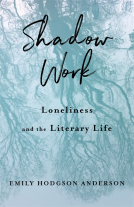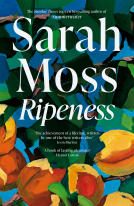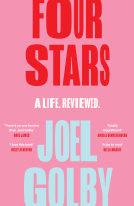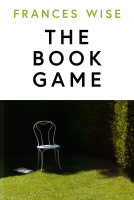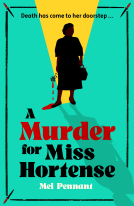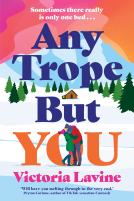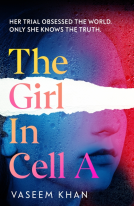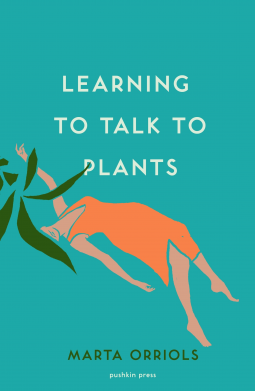
Learning to Talk to Plants
by Marta Orriols
This title was previously available on NetGalley and is now archived.
Send NetGalley books directly to your Kindle or Kindle app
1
To read on a Kindle or Kindle app, please add kindle@netgalley.com as an approved email address to receive files in your Amazon account. Click here for step-by-step instructions.
2
Also find your Kindle email address within your Amazon account, and enter it here.
Pub Date 15 Jun 2021 | Archive Date 17 May 2021
Talking about this book? Use #LearningtoTalktoPlants #NetGalley. More hashtag tips!
Description
An immersive, moving novel about complex grief: a woman attempts to rebuild her life after her boyfriend leaves her for another woman, then dies hours later--perfect for fans of Cheryl Strayed
Paula's partner has died in a car accident - but no one knows her true grief. Only hours before his death, Mauro revealed that he was leaving her for another woman.
Paula guards this secret and ploughs on with her job as a paediatrician in Barcelona, trying to maintain the outline of their old life. But all of Mauro's plants are dying, the fridge only contains expired yoghurt and her mind feverishly obsesses over this other, unknown woman.
As the weeks pass, vitality returns to Paula in unexpected ways. She remembers, slowly, how to live. By turns devastating and darkly funny, Learning to Talk to Plants is a piercingly honest portrayal of grief - and of the many ways to lose someone.
Advance Praise
"Marta Orriols debuts with a brilliant novel" -- Time Out
"Marta Orriols is an exceptional writer" -- El Periódico
"Marta Orriols has the ability to put into words the brevity and the unforeseen circumstances of everyday life" -- El País
Available Editions
| EDITION | Other Format |
| ISBN | 9781782275770 |
| PRICE | US$16.95 (USD) |
| PAGES | 256 |
Featured Reviews
 patsy_ t, Reviewer
patsy_ t, Reviewer
After reading the first paragraph of 'Learning to Talk to Plants', I knew I was at home. That this book will delight me, that I will keep coming back to it, that I will pause and soak up these beautiful and reflective sentences. When I think about literature that touches certain strings in me, it is usually intimate, personal, reflective prose, devoid of fast-paced action, but full of emotions, yet not laid out, but deeply hidden, which the characters reveal under the influence of certain events, thoughts, observations.
I like when authors allow their characters to develop in front of our eyes, get to know themselves, come to certain conclusions, externalize and err in discovering their feelings, emotions, analyzing their experiences and feelings. In 'Learning to Talk to Plants' we enter the head of Paula, a 42-year-old neonatologist who experiences a double loss. Well, her longtime partner dies in an accident. The same partner who announces at their last meeting that he is leaving her to live with another woman. Therefore, we accompany Paula in analyzing what happened, but also what had happened before. Paula tries to get through Maur's death and rejection. She tries to answer questions that she hasn't had time to ask him. Find answers to questions that she did not have time to pin down herself. He has to deal with anger that mixes with mourning. Cope with the thoughts and reflections that relate to their relationship, routine, and everyday life. Mauro becomes the recipient of her words, conversations in her head.
This is unique, but not easy prose, because it's best to read it slowly, sparingly, feeding on each sentence. I liked the first half of it much more, I liked the fragments about Paula's new acquaintance less. I like unhurried narratives. Although plot is not rich, a lot is happening in the reflective and verbal layer.
I highly recommend!
 Elizabeth S, Bookseller
Elizabeth S, Bookseller
4.5
This short novel really won me over. Reminded me of Sigrid Nunez’s The Friend in so many ways but easier to read. This is the story of a woman named Paula whose longtime boyfriend/common law husband told her he was leaving her for another woman...and then he got hit by a car hours later and died. The novel is basically Paula working through this complicated grief. Translated from Catalan.
Genre: Literary Fiction | General Fiction
Release Date: Expected 15th June 2021
Translated from Catalan
On the worst day of Paulas life, she lost Mauro twice. First when he announced he was leaving her for another woman, and then all over again just a few hours later when a tragic car accident takes his life. Not knowing how to even begin to deal with this all, she continues as though their life is normal - going to her job as a paediatrician, seeing her family, continuing their life without him in it. But most of all, obsessing over the life was torn from her and the woman who he fell in love with.
But slowly, in the home they'd built together, Mauros food is rotting in the fridge and all of his plants are slowly dying but as they do, Paula tries to learn how to live.
"Dying isn't mystical, Dying is physical, it's logical, it's real."
This story was devastating and moving, but with glimmers of laughter-inducing happiness when we can find the humour in the dark and depressing. It made us ask the impossible questions - can Paula seperate the anger she feels towards Mauro and her anguish at losing him? Can she still be angry at him now that he's dead? And how can she feel all these things at once?
A true-to-life, brutally honest account about the real complexities of grief and loss, and our individual journey back from it. Paula was a wonderful narrator, the prose was unique and almost poetic - it jumped and twisted like we were stuck inside her mind and her thoughts were steadily spiralling out of control.
RATING: ⭐⭐⭐⭐
Thank you to Marta Orriols, Pushkin Press and Netgalley for this ARC in return for an honest review.
It tells the story of a woman constantly dealing with life and death - she works with premature babies and is grieving the death of her boyfriend, who died mere hours after breaking up with her. Its beautifully written, and really shows the complexity of grief. I absolutely loved this!
 Reviewer 525829
Reviewer 525829
Learning to Talk to Plants was a realistic portray of someone in mourning. I was expecting something more dramatic based on the plot line that Paula was dumped hours before her boyfriend got into an accident and sadly passed way. But there was no drama, no extreme highs and lows; just a slow burn of someone grieving for her lost, which felt more authentic and real.
 Bruna M, Reviewer
Bruna M, Reviewer
4.5 Stars
This book was not easy to read. It dealt with difficult topics, such as grief, betrayal and depression. It made me sad and cry from time to time.
However, I simply couldn't put it down. The way Marta Orriols describes Paula's pain and her surrender to deep depression was so deeply raw, but at the same time, moving and so poetic. It was hard for me to not to think that I was reading a poetry book.
I couldn't help but relate to Paula's character, her struggles were real to me and it really saddened me to see how easy it is for a person in her situation, to give up everything and allow the madness to take over, in order to ease the pain and scape the horrible reality that is still around.
There was a sentence here that although I don't know if it's popular in this language or not, since English is not my mother tongue, made so much sense and really touched me, which was, "You can't build a house starting with the roof." For me this saying was the most wonderful way to start a healing process in this story.
This is dealing with painful things in the most beautiful way ever. Can't wait for it to be published, because this one is for cherishing.
 Abby S, Reviewer
Abby S, Reviewer
Paula the mesmerizing character in this book is dumped by her longtime boyfriend.Dealing with the shock of his leaving she finds out he has been killed in an accident and to add to her pain she finds out he was having an affair and the woman is pregnant.Paulas grief her emotions take us the readers through her pain& yes at times there are moments that will make you laugh.So well written so creative a book I highly recommend drew me in from first to last page.#netgalley #pushkinbooks
This isn't a novel that I would necessarily be drawn to but I am sure glad that I took a chance. This book focuses on grief, Paula loses her long-term boyfriend hours after he tells her he is leaving her for another woman. This was translated beautifully, and the plot ran so smoothly. Just really enjoyed this book and would recommend it.
Thanks NetGalley, Pushkin Press and Marta Orriols for an ARC to review.
First of all I fell in love with this book's writing style.
The book narrates Paula's grief journey after losing her long life partner in a tragic car accident, all her friends and family members tries to comfort her and ease her grief while missing a major piece of information; Mauro just confessed he's leaving her for another woman whom he was having an affair for a while....hours later the accident steals away his life and turns Paula's life upside down, she is not sure whether to be sad or angry at Mauro..
Paula works as a neonatal pediatrician, the battle she and the entire team undergoes every single shift in order to save lives while unfortunately losing others in the process didn't make her ready for Mauro's death.
A lovely emotional excellent book. I absolutely loved it.
From the publisher: “By turns devastating and darkly funny, Learning to Talk to Plants is a piercingly honest portrayal of grief – and of the many ways to lose someone.”
The publisher’s quote above really says it all for this book, at least for me. I rated this book a 4/5, mostly because it was so painful to read. I personally didn’t find the dark humor noted above, but there was quite a bit I found devastating.
Marta Orriols has truly taken the reader to a dark place, albeit she works herself out of it and into a better place. The writing is strong, however, there were times when I was unsure who she was talking to, or if it was a flashback vs. the present time. Since it is written in first person, protagonist Paula, a neonatal physician, is often talking to herself, to the object of her grief, or to a coworker. Because everything in the novel becomes marked by “before X happened” or “after X happened,” flashbacks taken out of present time but still written in present tense are sometimes a bit confusing.
The book is peppered with medical jargon, most of which is self-explanatory taken in context, but it seems realistic for a doctor to speak—and think—that way, even when we hear her inner dialogue. I found Paula’s professional life, also filled with darkness and loss, to be interesting. I was not as intrigued by her post-trauma love life and attempts at returning to the vitality of her pre-trauma life.
Thanks to NetGalley for providing me with an e-book version of this new novel.
Learning to Talk to Plants primarily deals with death and grief, but the search for overcoming these inevitably leads our heroine to find new ways to "be", and maybe if not necessarily better then definitely ways that feel right for her, and this to me marks a spectacular coming-of-age, despite being "forced" by external circumstances.
So what is it actually about?
Paula's unmarried partner of many years has died in a car accident and there's a double twist in the fact that hours before his death, he told her he was leaving her for another woman.
The shock (or perhaps, shame) forces Paula to keep this a secret, while both his and her family and friends are trying to help her deal with the grief. Paula's grief, however, is coupled or better yet toppled by anger, anger that she didn't have time to deal with and is now burying inside herself until it cannot longer be ignored. She works as a neonatologist in Barcelona and is totally devoted to her job. The work she does along with her colleagues and the atmosphere are well captured and integrated within the threads of her grief.
Despite the grim topics (death, grief, loneliness), the book exudes hope and positivity. There's a lot on desire, romance, female friendship, jealousy, father-daughter relationships, and all these bring something hopeful to the table.
Learning to Talk to Plants is a fantastic piece of psychological fiction that goes deep into character development. I was hooked and fully invested. I'm not surprised it has won a prize for the best Catalan novel.
Thanks to Pushkin Press and NetGalley for my advanced digital copy.
3.75 stars / This review will be posted at BookwormishMe.com today.
Paula is grieving. Having suffered not one loss, with the death of her partner, but the loss of him shortly before his actual death. Mauro had just told Paula that their relationship was over.
Now she is trying to move forward with her life as a neonatologist and a single woman. Very few people know that Mauro was ending their relationship, and so everyone expects her to be grieving for his death. Paula shares with us her grief, anger, and despondency in a beautifully written novel by Orriols.
When reading a translated novel, it’s not only the original writing, but the masterful translation that is needed to convey the story. Lethem has done such an amazing job of giving us a slow moving story with beautiful prose. This is not a “read it one sitting” novel. It is one to be savored. It is a very thoughtful story that is paced for us to absorb Paula’s grief the same way she appears to be moving, slowly.
Recommended for it’s lovely writing.
Learning to Talk to Plants is a delicate novel, in which the intensity of an all-shattering loss is outlined with an unprecedented tenderness. In Barcelona, a couple is having lunch in a restaurant: they have been together for twenty years and Paula is about to tell Mauro that she would like to get married and have a child, but before she can speak, he announces that he has another younger woman who he has decided he wants to be with, and, just like that, their relationship and love story are over. He then gets up and walks away, leaving Paula alone and furious. Two hours later, a phone call informs her that Mauro has had a devastating car accident just outside the restaurant caused by a driver who ran a red light and is very serious condition in hospital. Paula will never see him alive again. Paula Cid is a 42-year-old neonatologist looking after some of the most poorly children and she is passionate about her job. After her unexpected loss, she cannot help but withdraw into herself. Abandoned, she remains behind and diligently looks for something to hold on to. To her great surprise, she finds it in Mauro's apartment, where she lived with him. Gradually, a new path unfolds for her, in which anger, fear and desire alternate.
Slowly but surely, Paula's survival instinct is fuelled, and she eventually learns to reconcile with a world she no longer recognises. This is a compelling, evocative and heart-wrenching novel written with poignancy and delicacy from the perspective of a woman who struggles to know exactly how to feel over her double loss but who is progressing towards rebirth. Award-winning Catalan author Marta Orriols' narrative, evocative, intense and reflective, invites us to stay with what is essential in life. An intimate book that weaves a close-knit story capable of dealing with the most heartfelt pain with a very unusual stylistic maturity, the stream of consciousness narrative works exceptionally well and this sensitive and profound tale really does highlight how closely the line between love and hate actually is and how they often go hand in hand. The novel is the elaboration of Paula’s complex, two-sided mourning: pain for the loss of who she thought was her life partner and anger for his sudden betrayal, both of which require her to recalibrate. It places a magnifying glass to reveal the details of the female soul, taking us in seconds from pain to tenderness, from a smile to the most dramatic emotion. Highly recommended.
An interesting story where you follow Paula as she works through the process of grieving both the physical death of her longtime boyfriend/partner as well as the loss of their emotional connection. At times, the writing is her internal monologue where she is talking to Mauro as if he is there.
Family and friends give her time to grieve, but do not realize her deep, dark secret. Specifically, that the grief is also for his ending their relationship just hours before his death.
Over the course of a year, she begins to experience "signs of life" so that by the end of the story she is truly moving forward with her life. But there are plenty of bumps along the way.
This title was translated, but I did not experience any issues with the translation.
 Mandy J, Reviewer
Mandy J, Reviewer
This immersive and moving novel tells the story of Paula, a 40-year-old neonatologist living in Barcelona, whose long-term partner suddenly announces that he is going to leave her and then almost immediately afterwards is killed in a road accident, leaving her to cope with loss and grief on two levels. As she navigates a future without him, the author sensitively and with real insight explores all the complexities and nuances of Paula’s grief in an emotionally honest and compassionate way. True to life, beautifully written and well-paced, it’s a gentle tale, a sad but not depressing one, and I very much enjoyed it.
A quiet, candid portrait of grief in all its complexity and weight. Reading about death will always feel “too soon”, I think, both uncomfortable and comfortable at the same time. This novel is a beautiful old photograph of loss.
 Reviewer 778607
Reviewer 778607
https://www.goodreads.com/book/show/53294479-learning-to-talk-to-plants
A depiction of grief and losing a loved one that doesn’t seem to ever happen. A depiction that was real and moving. I tore though this and felt everything that was written wholly and fully.
Thank you for handling the complex topic of grief so delicately, and how penetrable it can be. This book has its ups and downs, and deals with heavy topics without leaving you feeling deflated. A great read.
I loved this book so much of a woman who is trying to move on after the death of her partner who revealed he was leaving her before he died. How would you react? Such a strange thing, are you angry or sad, how do you move on even though you know the person didn't want to be with you anyway? Dark and funny and honest, this was absolutely lovely!

